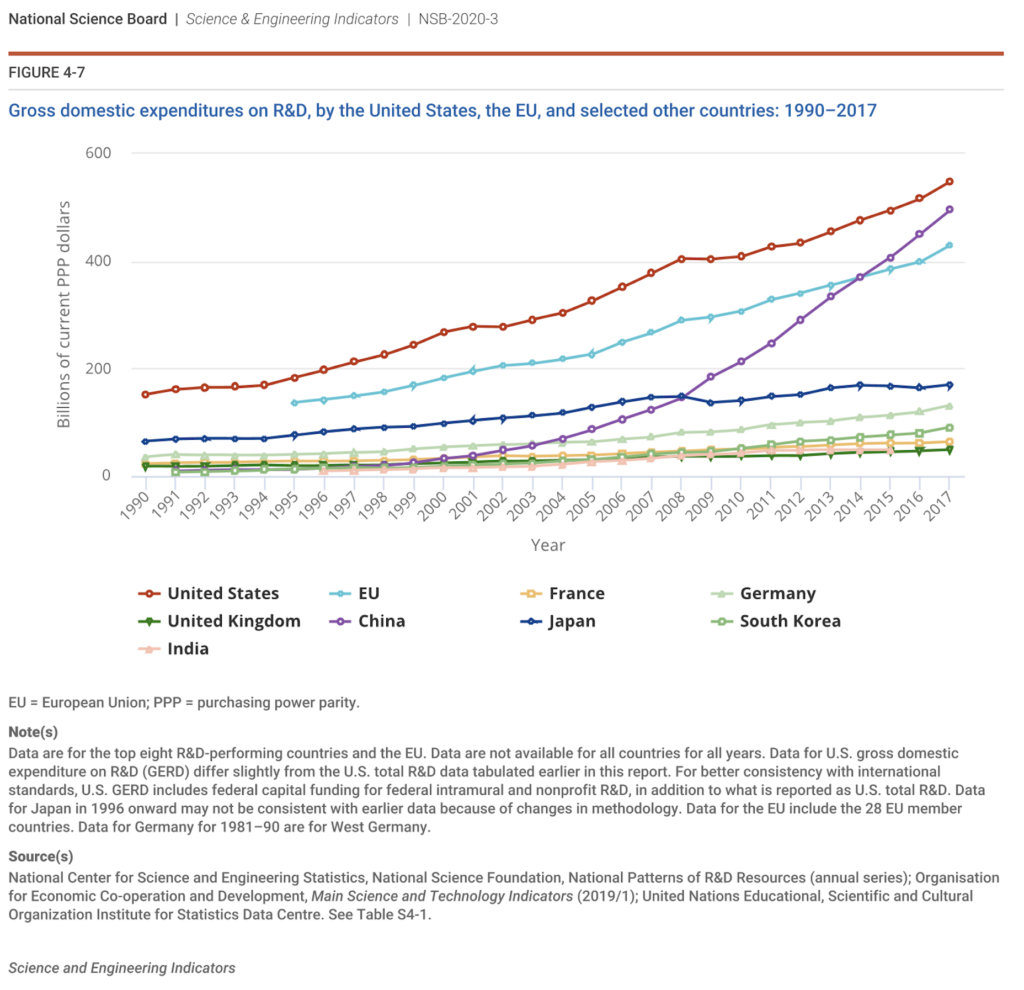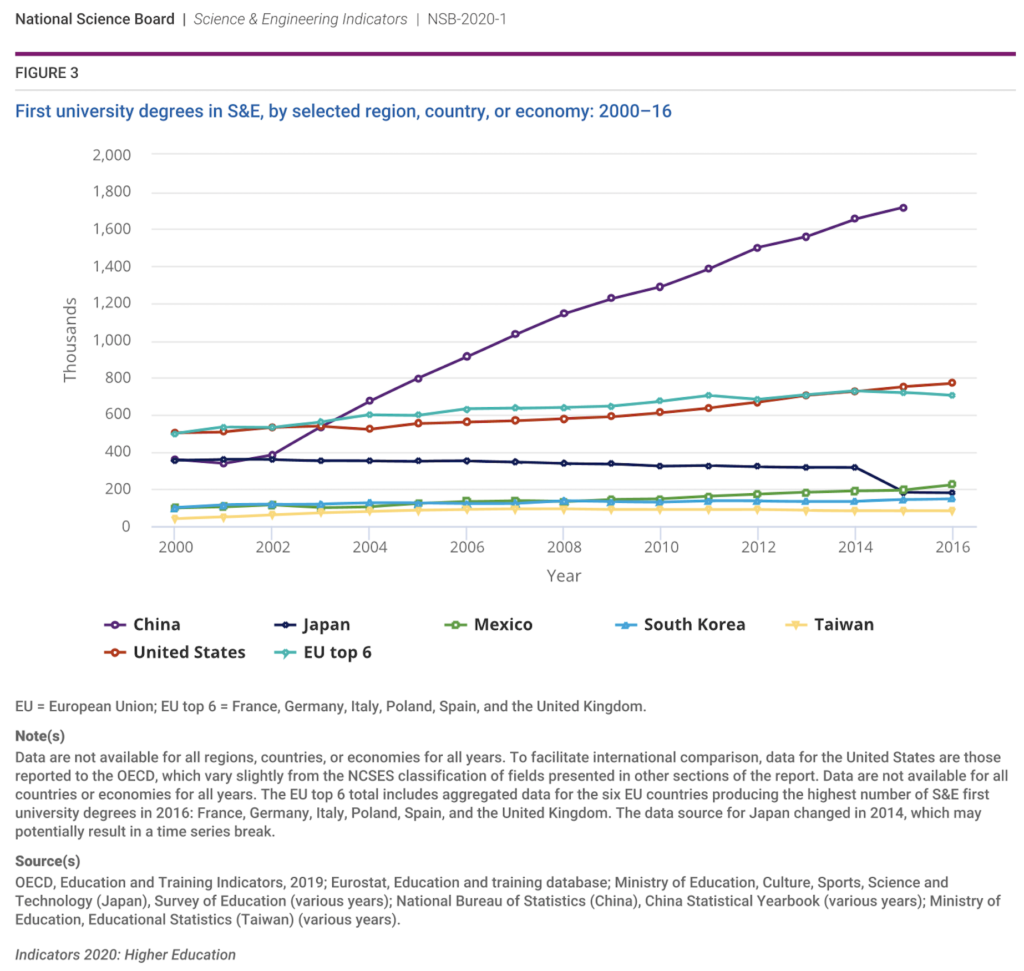In the past 20 years, China has rocketed past Japan and become the second biggest economy in the world. It is now on the brink of overtaking the US as the world’s top economic engine. It is flexing its military power in unveiled threats to Taiwan and planning to replace the US dollar as the standard international currency. How has such a magical transformation been engineered in such a short time?
The graph below from the US National Science Foundation compares the investment in research and development (R&D) by each country from the year 1990 to 2017. R&D investment is roughly a measure of a country’s commitment to the development of technology. The exponential increase in China’s R&D investment reveals their intense commitment to moving into the forefront of the technological revolution.

The graph below showing the number of first university degrees (i.e., equivalent to a B.Sc.) in science and engineering (S&E) from the year 2000 to 2016, provides an insight into where a major portion of China’s R&D budget is invested.

In the conclusion of its report, the National Science Foundation states:
Although this report does not forecast future outcomes, the data show the evolution of the United States in the global S&E enterprise. The United States continues to lead globally in R&D expenditures, S&E doctoral-level degree awards, and production of highly cited research publications. At the same time, other nations, particularly China, are rapidly developing their S&E capacity. As a result, the United States has seen its relative share of global S&T activity flatten or shrink, even as its absolute activity levels kept rising. As more countries around the world develop R&D and human capital infrastructure to sustain and compete in a knowledge-oriented economy, the United States is playing a less dominant role in many areas of S&E activity.
For over 1000 years, the keju (civil service exams) served China in maintaining its status as a major world power and the world’s largest economy. Leibniz and Voltaire both lauded the Chinese philosophy and system of government as superior to those in Europe, attributing its success to the intelligence of its leaders. However, by the beginning of the 19th century, China was falling behind, because they had not participated in the Industrial Revolution that had mechanized production. Though many different explanations have been given to explain why China missed this opportunity, Peking University Professor of Economics, Justin Yifu Lin attributes it to the existence of the keju, stating:
Because the civil-service examination system focused only on the Confucianism and the literary skills, most of the talented people in China were fully devoted to either the civil-service examination or the research of humanities. They lacked the incentives to learn and accumulate skills in mathematics and controlled experiment, not to mention the ability to combine the two, formalize the knowledge in mathematical forms and test through experiments. As a result, scientific revolution could not spontaneously take place in China, … . Without scientific revolution, the development of its science and technology could not break up the bottle-necks for further development once they reached certain level. Thus, its technology could not continue to progress and its capitalism could not be deepened.
Falling behind in their development of technology, and in particular the technology of war, rendered China vulnerable to European domination. In 1842, the Treaty of Nanking assessed China with heavy reparations that brought the nation to its knees and signaled the end of China as a world power. It was a downward spiral that continued while the keju remained in place. Then, in 1898, acknowledging that “Westerners pursue useful knowledge, but all we Chinese pursue are useless knowledge,” Emperor Guangxu instituted reforms, including the establishment of European-style universities and a major revision of the keju to include content more relevant to China’s survival.
China learned its lesson well, and is now appearing to avenge the Treaty of Nanking.

Thank you Brendan,
The answer is obviously yes and to try and even stop this process would be a fruitless exercise. What is important to note is the GDP per person and how this is spread throughout the country. USA is still by far and away ahead in that respect.
The graphs shown are of great interest to me – Education is the key to progress, and yes China has quite rightly prioritized education/ R&D into the technology industry. Though without correct direction as with the western civilizations education/ R&D it can do as much damage as good.